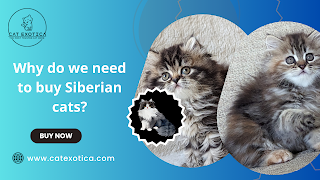What Are the Most Common Issues Related to Kitten Health?
Introduction
Kittens are adorable, playful and full of energy. But just like human babies, they need special care to grow into healthy adult cats. Whether you are a first-time cat owner or an experienced pet parent, understanding common kitten health issues can help you provide the
1. Fleas and Parasites
Fleas and parasites are among the most common issues
Symptoms:
Excessive scratching and biting
Visible fleas or flea dirt in the fur
Bloated belly
Diarrhea or vomiting
Lethargy and weakness
Prevention & Treatment:
Regular flea control
treatments are recommended by a veterinarianDeworming medication as per
vet instructionsKeep your kitten’s environment clean
2. Upper Respiratory Infections (URIs)
Upper respiratory infections (URIs) are common in kittens, especially those in shelters or multi-cat households. These infections are usually caused by viruses such as feline herpesvirus or calicivirus, which spread through sneezing, coughing, or direct contact.
Symptoms:
Sneezing and nasal discharge
Watery or red eyes
Coughing and congestion
Loss of appetite
Prevention & Treatment:
Keeping the living area clean and well-ventilated
Providing proper nutrition to strengthen the immune system
Veterinary-prescribed antibiotics if necessary
3. Diarrhea
Symptoms:
Loose or watery stools
Frequent bowel movements
Dehydration
(dried gums, sunkeneyes) Loss of appetite
Prevention & Treatment:
Feed a consistent and balanced dietAvoid sudden dietary changesEnsuring clean water availability
Consult a vet if diarrhea persists
4. Feline Distemper (Panleukopenia)
Feline distemper, also known as panleukopenia, is a highly contagious and life-threatening viral disease. It primarily affects young kittens and
Symptoms:
Severe vomiting and diarrhea
High fever Loss of appetite
Lethargy
Prevention & Treatment:
Vaccination at the recommended age
Isolating infected kittens
Supportive care, including fluids and nutritional support
5. Eye Infections
Eye infections are common in kittens and can result from bacterial or viral infections, allergies, or irritants. If left untreated, they can lead to more severe eye problems.
Symptoms:
Red or swollen eyes
Discharge from the eyes
Excessive
tears Frequent blinking or pawing at the eyes
Prevention & Treatment:
Keep the eyes clean with vet-approved solutionsAvoiding exposure to allergens and irritants
Seeking veterinary care for persistent infections
6. Malnutrition and Dehydration
Kittens need proper nutrition to grow and develop strong immune systems. Malnutrition and dehydration can occur due to inadequate feeding, illness, or neglect.
Symptoms:
Weakness and lethargy
Poor coat quality
Weight loss
Sunken eyes
and a dry mouth(from dehydration)
Prevention & Treatment:
Feed high-quality kitten foodProviding fresh water at all times
Monitoring weight gain and overall health
7. Feline Leukemia Virus (FeLV)
Feline leukemia virus (FeLV) is a serious disease that weakens a kitten’s immune system, making them susceptible to infections and other illnesses. It is spread through saliva, blood, and other bodily fluids.
Symptoms:
Pale gums
Poor growth
Recurrent infectionsWeight loss
Prevention & Treatment:
FeLV
vaccine for at-risk kittensKeep infected cats separatedRegular veterinary
check-ups
8. Hypothermia
Kittens, especially newborns, are highly susceptible to cold temperatures. Hypothermia can be fatal if not addressed immediately.
Symptoms:
Shivering
Cold body temperature
Weaknesses and unresponsiveness
Prevention & Treatment:
Keep kittens warm with blankets or heating padsAvoid exposure to cold draftsSeek immediate veterinary care if severe
Conclusion
Caring for a kitten requires
If you are looking for healthy and
Feel free to contact us:-
Call: +91-6363157838
Mail: catexotica.enquiry@gmail.com
Website: www.catexotica.com




Comments
Post a Comment